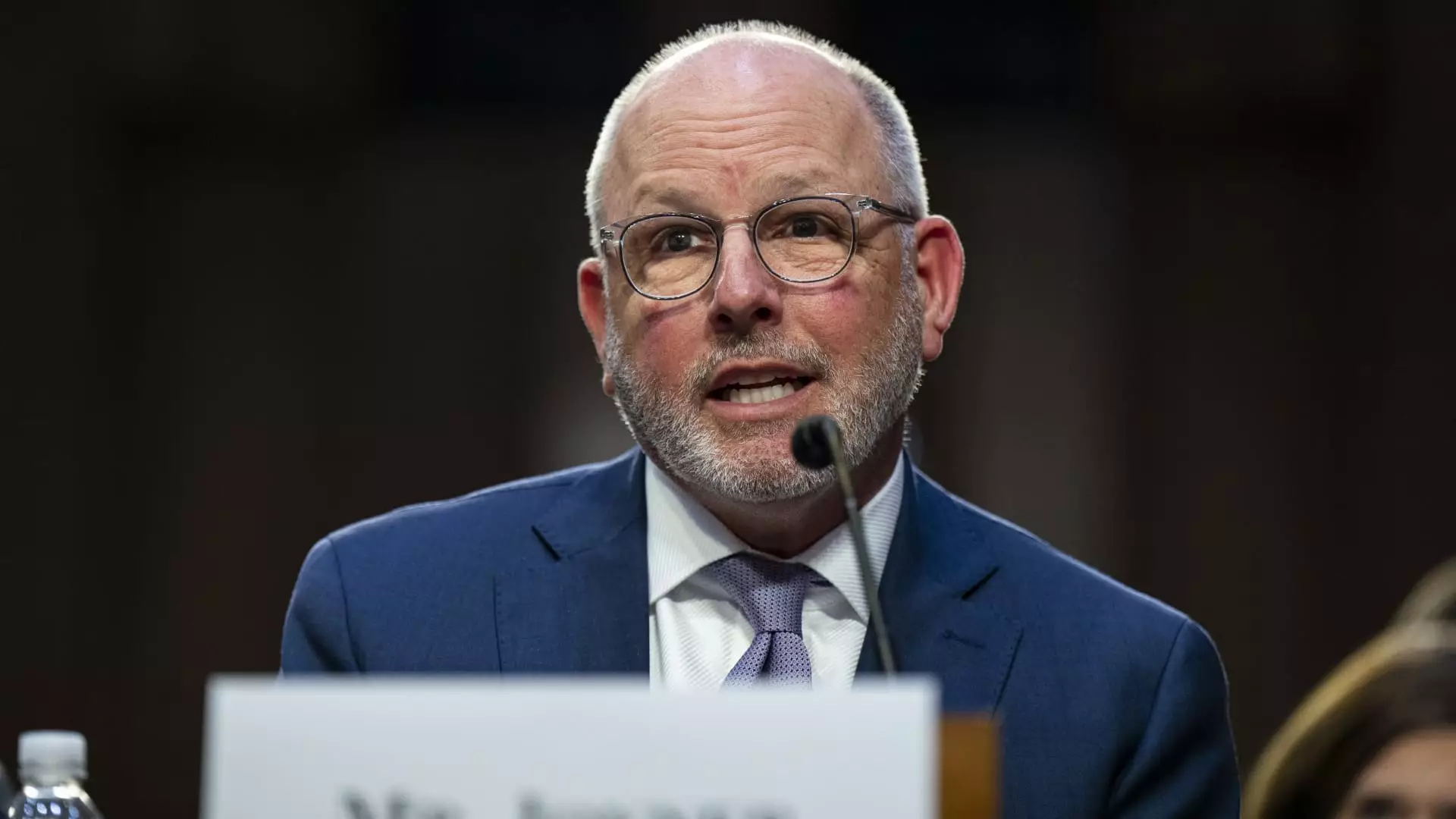In a significant shift, long-term CVS Health executive David Joyner has officially taken over as the new CEO, succeeding Karen Lynch. Announced on a Friday, this leadership change reflects the company’s ongoing struggles to enhance profitability and improve stock performance. With CVS’s shares languishing nearly 20% lower this year, including a sharp 11% drop in premarket trading following the announcement, the company finds itself at a critical juncture.
Investors and industry analysts are keenly watching how Joyner’s appointment will address the multifaceted challenges faced by CVS, particularly within its insurance arm, Aetna. A confluence of rising medical costs and a retail pharmacy sector grappling with decreased consumer spending exacerbates the situation. CVS’s predicament was underscored when the company cut its full-year profit projections for the third consecutive quarter, underscoring the urgency for efficient leadership.
CVS Health operates in an increasingly complex marketplace, with various factors compounding its challenges. The glaring issue is the heightened medical expenses impacting Aetna’s operational viability. Additionally, the retail pharmacy business is facing increasing reimbursement pressures pertaining to prescription drugs, leading to an environment ripe with financial strain.
The company made strides towards fiscal recovery by announcing intentions to cut $2 billion in costs over the coming years. Still, these efforts seem insufficient against a backdrop of rising medical costs that have taken investors by surprise. It is perhaps not surprising that CVS lowered expectations for adjusted earnings for its upcoming third quarter, projecting earnings per share between $1.05 and $1.10. If actual medical costs surpass projections, the implications for profitability could be dire.
The leadership shake-up comes amid rising tension from major shareholders, notably Glenview Capital, which is actively urging CVS to rethink its corporate strategy. The potential for a split in CVS’s insurance and retail operations has led the board to consult strategic advisors, seeking alternative pathways to revitalize the organization. However, CVS has chosen to forge ahead as a consolidated entity, opting for an integrated approach under Joyner’s leadership.
With Joyner stepping in as CEO after a notable tenure overseeing CVS’s pharmacy benefits manager, Caremark, stakeholders are hopeful he can leverage his extensive experience to navigate the complexities besieging the company. Following his earlier retirement in 2019, Joyner returned to CVS in early 2023, reflecting a renewed commitment to steering the company toward profitability.
As CVS’s new CEO, Joyner faces considerable challenges, not the least of which include increasing scrutiny from both the Biden administration and lawmakers concerning the operational practices of Caremark. The Federal Trade Commission’s recent legal action against Caremark, accusing it of practices detrimental to the affordability of insulin, further complicates Joyner’s task of steering CVS’s strategic direction amid an era of heightened regulatory focus.
Moreover, Joyner will need to mitigate the rising costs associated with Medicare Advantage patients, a segment that has been particularly impacted as many seniors return to healthcare settings after delaying essential procedures during the acute phases of the COVID-19 pandemic. During an earnings call in August, CVS executives expressed optimism about improving their Medicare Advantage margins, targeting a margin enhancement of 100 to 200 basis points. With critical earnings reports looming, the pressure will mount for Joyner to ensure that operational efficiencies translate into tangible financial improvements.
With Joyner at the helm, CVS Health’s stakeholders are hopeful for a turnaround that can restore confidence and drive the company forward. His deep familiarity with the workings of CVS—from pharmacy benefit management to direct insurance operations—positions him as a uniquely qualified leader capable of addressing the multifaceted issues the company faces. Yet, fundamental challenges remain.
The forthcoming third-quarter earnings report, scheduled for November 6, will serve as a critical gauge of Joyner’s strategic vision and the company’s capacity to stabilize its operations amid fluctuating market forces. Moving forward, CVS will have to cultivate a strategic balance between improving profitability, maintaining investor trust, and effectively navigating a heavily regulated healthcare environment. All eyes will be on Joyner as he embarks on this ambitious journey.

